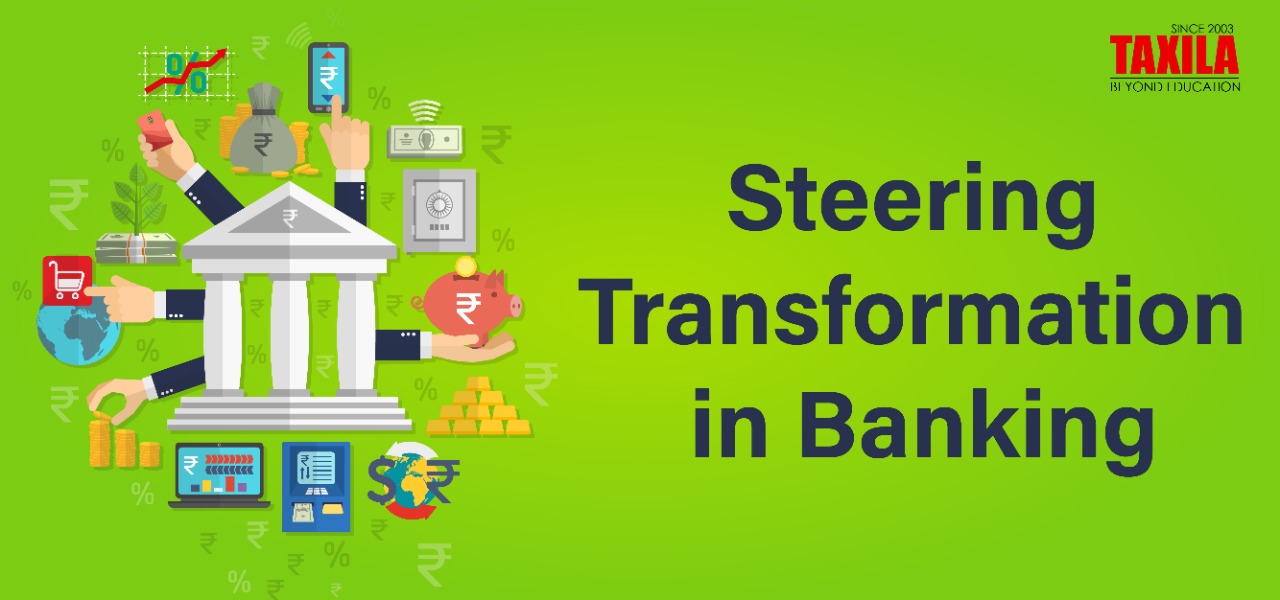
The banking industry is a vital sector of the Indian Economy. It is all the more important because India is a Bank based economy. There is a strong wind of transformation blowing all across the banking financial services and insurance sectors. Banking in India has undergone a massive change and evolution continuously. The change can be attributed to various components like new regulatory policies and customer expectations.
Few trends that are bringing about metamorphosis in the entire scenario of Banking in India are:
- Digitalisation The burgeoning digital technology in India compelled the banking system in this country India to introduce innovative digital solutions to cater to the needs of the ever-growing tech-savvy clientele. Besides the financial institutions, sectors like insurance, health care, retail, trade, and commerce are experiencing this digital shift. Till date, the banking system is easier, simpler, paperless, signatureless, branchless, for its entire client base.
- Enhanced Mobile banking: Mobile banking is a current trend and is very popular in banking. It enables you to check account balance, transfer funds, and pay bills from anywhere, anytime. Mobile banking future is likely to include IoT and Voice-Enabled Payment Services. These voice-enabled services can be found in smart televisions, smart cars, smart homes etc. Top industry leaders are collaborating to adopt IoT-connected networks to create mobile banking technology that uses voice to operate.
- UPI(Unified Payment Interface) UPI has changed the way payments are made in India now. It is a real-time payment system. This enables instant interbank transactions with the use of a mobile platform. In India, this payment system is considered to be the future of retail banking. It is one of the fastest and most secure payment gateways developed by NPCI( National Payment Corporation of India) and regulated by the Reserve Bank of India. There are approximately more than 45 apps, 50 Bank supporting the transaction system. During the post-demonetization phase in India, this system played a significant role.
- Block chain Block chain is the latest buzzword. The technology that works on the principles of computer science, data structure, and cryptography is believed to be the future of banking and financial services Global blockchain uses technology to create blocks to process, verify and record transactions restricting the ability to modify it. Niti Aayog is creating IndiaChain, India's largest blockchain network which is expected to revolutionize several industries, reduce the chances of fraud, enhance transparency, speed up the transaction process, lower human intervention, and create a unhackable database.
- Artificial intelligence Robots: Several private and nationalized banks in India have started to adopt chatbots for Artificial intelligence robots for assistance in customer support services. For now, the use of this technology is at a nascent stage, and the evolution of these chat boxes is not too far away. Usage of chatbots is among the many emerging trends in the Indian banking sector that are expected to grow.
- Mobile Wallets: It is a recent trend in the Indian financial system. The mobile wallet facilitates a paperless and branchless payment system. This new breed of institution in turn is rapidly overtaking the traditional modes of banking. These wallets provide banking facilities only through various platforms that can be accessed on mobile, computers, and tablets. Mobile wallets companies like Paytm, Amazon pay, Google pay, phone pay, Mobikwik, ICICI pockets are attractive to customers because of their cost-effective operating models. At the same time, though they virtually either provide high-speed banking services at very low transaction fees.
- Cloud Banking: Cloud Technology has taken the world by storm. It seems the technology will soon find its way into the banking and financial services sector in India. Cloud Computing will improve and organize banking and financial activities. The use of cloud-based Technology means improving flexibility and scalability, increasing efficiency, and generation of newer technologies and applications lightning services, quick solutions, and improve data security. In addition, the banks will not have to invest in expensive hardware and software as updating the information is easier on cloud-based models.
- Biometrics: Essentially for security reasons a biometric authentication system is changing the national identity policies and the impact is expected to be widespread. Banking and financial services are just one of the many Industries that will be experiencing the impact with a combination of encryption technology and OTP. Biometric authentication is expected to create a highly secure database for protecting it from leaks and hacking.
- Wearables: With smartwatch Technology, the banking and financial services aim to create variables for retail banking customers and provide more control and easy access to the data. Wearable has changed the way we perform our daily activities. Therefore this technology is anticipated to be the future retail banking trend providing major banking services with just a click on a user-friendly interface on their wearable devices.
- Fintech Companies: Fintech companies and Fintech apps have changed the way financial solutions are provided to customers. Besides easy access to services, fintech companies have led to massive improvement in services, customer experience, and reduction in service fees. In India, the dynamic transformation has been brought by several important elements like fintech startup, established Financial Institutions initiatives like startup India by the government of India. Fintech companies have become an important part of the banking sector.
The emergence of innovative financial Technologies has revolutionized the banking sector. It has resulted in the introduction, progress, and convergence of several technological trends that have contributed to this radical transformation growth and development of the banking industry. The union of innovative technologies in banking service has changed the conventional system of handling money . This collaboration is expected to create a massive shift in the emerging trends of Banking.

By Dr. Sanjoli Jain
Ph.D. MBA
8+years of experience and enduring passion in Management Teaching, Corporate experience, Business Administration, Research and Relationship Management.

